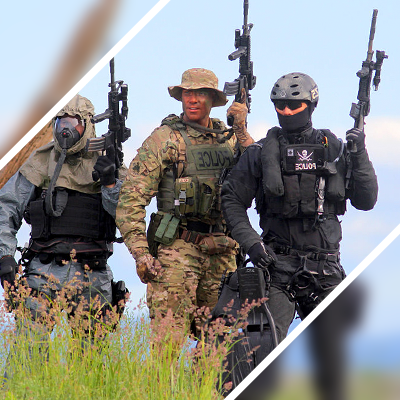 In addition to providing security services to vulnerable individuals, guards or agents may also work to protect sensitive infrastructure or high value assets, often in the form of restricted access areas, sensitive installations and facilities, and dangerous circumstances.
In addition to providing security services to vulnerable individuals, guards or agents may also work to protect sensitive infrastructure or high value assets, often in the form of restricted access areas, sensitive installations and facilities, and dangerous circumstances.
Unless the circumstances require that they conceal their presence so as to hide the details of the entourage and their armed status, security personnel will often maintain a prominent presence to deter people from trying anti-social behavior with the person or group in question.
Detection And Deterrence
These people are trained to monitor and detect suspicious behavior, keep an eye our for the entries and exits to a building, and those moving in and out, or any concerted action that involves a group trying to harm the protected individual.
All of this is supplemented by coordinated detection activity, including patrolling duties, receiving alerts through alarms and wireless communication systems, and watching out for suspicious activity in video feeds of the areas being covered.
Emergency Response
Depending on their briefings and exact responsibilities, their emergency responses will entail covering the protected individual for enemy fire and sight, moving the person to a safe location, organizing transport for the venue that has become dangerous, and moving other innocent bystanders away from the location.
Prerequisites
Private officers, such as those delivering security services in Baghdad – Almurabit usually wear uniforms, deviations from the norm including Secret Service agents in the United States, who are charged with protecting the president and lawmakers, and personal bodyguards, both of which wear suits.
The private security services industry is often regulated by law, which, depending on the area and country, will encompass looking into their past through a background check, for incidents involving law enforcement, abuse of firearms or authority, harming innocent people, and alcohol use.
Additional Functions
 Beyond the mainstream obligations, private security personnel carry out a range of other duties as well, including providing protection to prominent political personalities, the use of police for which, may make it easier for organized crime participants to better plan their attacks.
Beyond the mainstream obligations, private security personnel carry out a range of other duties as well, including providing protection to prominent political personalities, the use of police for which, may make it easier for organized crime participants to better plan their attacks.
At times they may also act in aid to law enforcement agencies, helping to seal perimeters, ensuring criminal activity is detected and countered, and giving effect to arrests made on the part of a civilian.
Non-lethal Response
In unforeseen circumstances, private security personnel may also be required to use first aid and CPR, maintain a log of threats and surrounding circumstances during the event in question, and contribute to reports regarding making the security function for the person in question more foolproof.
Licensing And Background
These guards may also be required to be licensed, which involves training in managing key weapons, evacuation methods and the use of deadly force.
Since they are often required to have passed through a background check and have extensive training in dealing with dangerous situations, many private security consultants and guards are in fact people who have at some point served in the military or another specialized law enforcement agency.
Source: almurabit.com

